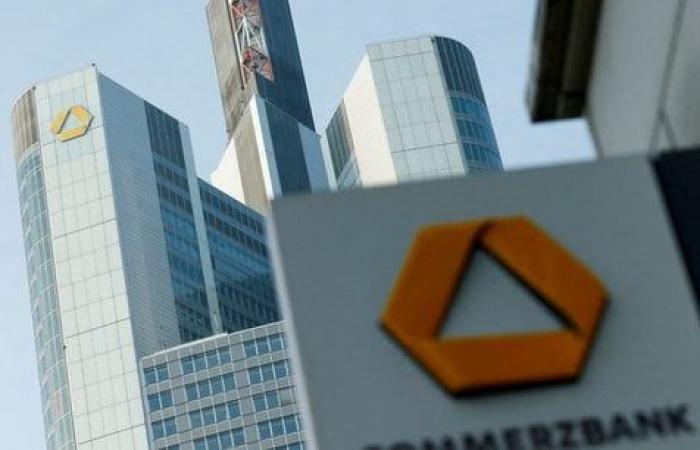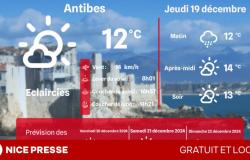The Italian bank UniCredit “made in Andrea Orcel”, its emblematic CEO “deal maker”, no longer knows where to turn as it multiplies its fronts across Europe, even Russia. On the German side, the bank has just increased its stake in Commerzbank to 28% of the capital, using derivatives. The Italian bank previously controlled 21% of the capital. The Italian bank now has a direct stake of 9.5% in the capital of Commerzbank and a stake of 18.5% via derivatives.
Banco BPM: the boss of UniCredit shakes up the game again
The use of derivatives has a double advantage: it protects the Italian bank against a possible drop in Commerzbank’s share price but, above all, it allows the necessary green light from the regulator to be deferred over time. UniCredit has already asked its supervisory authority, in this case the European Central Bank (ECB) with regard to “systemic banks”, to cross the 10% threshold upwards, up to 29.9%, which which she has not yet formally obtained.
German front and Italian front
As always since the surprise “raid” carried out in September by UniCredit on Commerzbank, Andrea Orcel reaffirms her position by presenting this increase in capital as, “for the moment”, an investment in an asset expected to increase in value. There is therefore no question, for the moment, of launching a public offer. Especially since the Italian initiative was, to say the least, poorly received in Germany, both by the staff and the board of Commerzbank and by the political class. Ultimately, only the market is rather favorable to an operation with Commerzbank. Moreover, both titles were doing very well today.
Cautious, Andrea Orcel wishes to act over time, with patience, while defending the idea of a combination of the two banks. During a meeting with sell-side analysts in early December, the CEO of the Italian bank acknowledged that political instability in Germany risks delaying the timetable for operations and the decision whether or not to launch an offer.
Unicredit officially submits its offer for Banco BPM
The formation of a new coalition government could in fact take six months from the elections of February 25. And the new government will undoubtedly have more urgent issues to deal with than banking consolidation, especially with the arrival of Donald Trump at the White House who has Germany’s trade surpluses with the United States in his sights. United.
Strong assets
The increase in this participation should not impact the public exchange offer process, according to the UniCredit press release. Because Andrea Orcel is also active on the Italian front while he launched a public exchange offer (OPE) on Banco BPM, although promised another union, with Banco MPS. But here too, the board and staff of Banco BPM rejected the offer, a rejection reaffirmed again this Wednesday. Banco BPM notably contests the figures put forward by UniCredit to convince the bank’s shareholders.
The attacker had claimed that his exchange offer represented a premium of 14.8% on BPM’s November 6 closing price, before the latter itself launched a public purchase offer for Anima, the last large independent asset manager in Italy. According to a press release from the board of Banco BPM, the premium offered would only be 3.9%.
In Italy, UniCredit has solid assets to succeed in its offer, even if the price of the offer remains subject to debate. But the Italian bank has enough excess capital to increase its offer and convince BPM’s shareholders, notably Crédit Agricole which has not ruled out increasing its stake to 15%, compared to 9.2% currently. “The offer for Banco BPM has a better chance of succeeding than the operation for Commerzbank. There are not really any big obstacles and even the Italian government is divided and Crédit Agricole, which does not want to launch an offer for Banco BPM, will be able to obtain new commercial agreements in exchange for its participation.estimates Jerôme Legras, manager at Axiom AI.
Retreat from Russia
Finally, in 2025, UniCredit will have to find a way out of its annoying presence in Russia. Not only are the Russian authorities threatening Western banks that would like to leave the country, but Russia still generates generous profits for the Italian bank, which has 3,000 employees and 12 billion euros of weighted assets in the country. The ECB is putting a lot of pressure on UniCredit to exit the Russian market.
Until now, UniCredit has taken advantage, like all Italian banks, of the rise in rates to rebuild their margins. This led to a revaluation of the Italian banking sector, with an increase in net profits per share of around 20% in 2024. The year 2025, however, presents itself under less favorable auspices for the interest margin, even if the sector should still benefit from M&A transactions and high returns.






